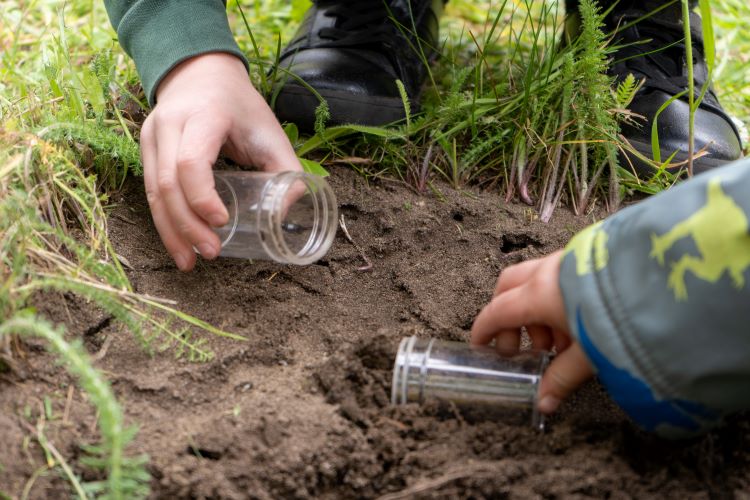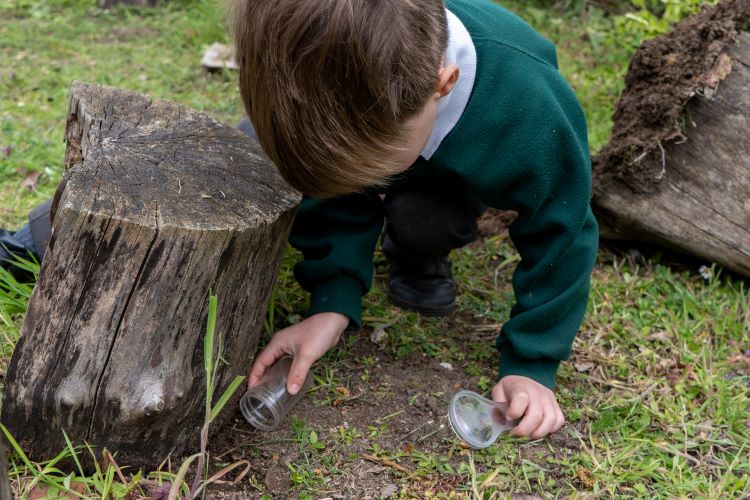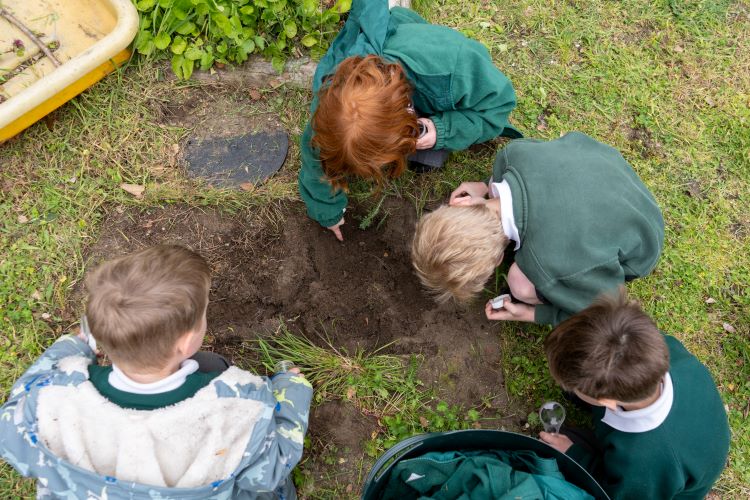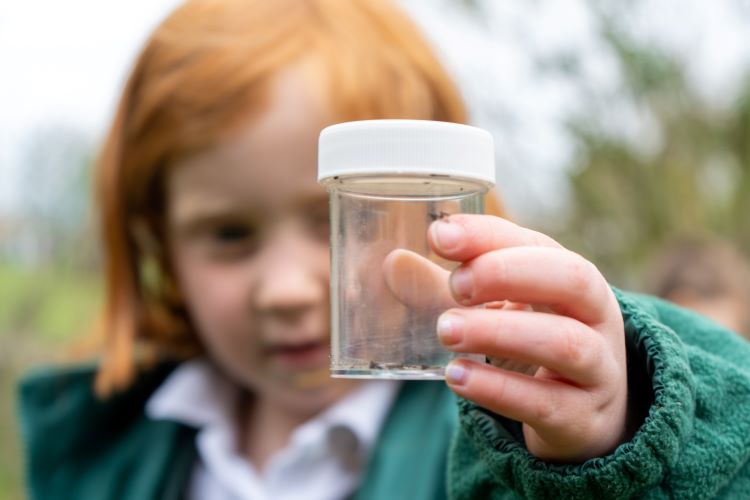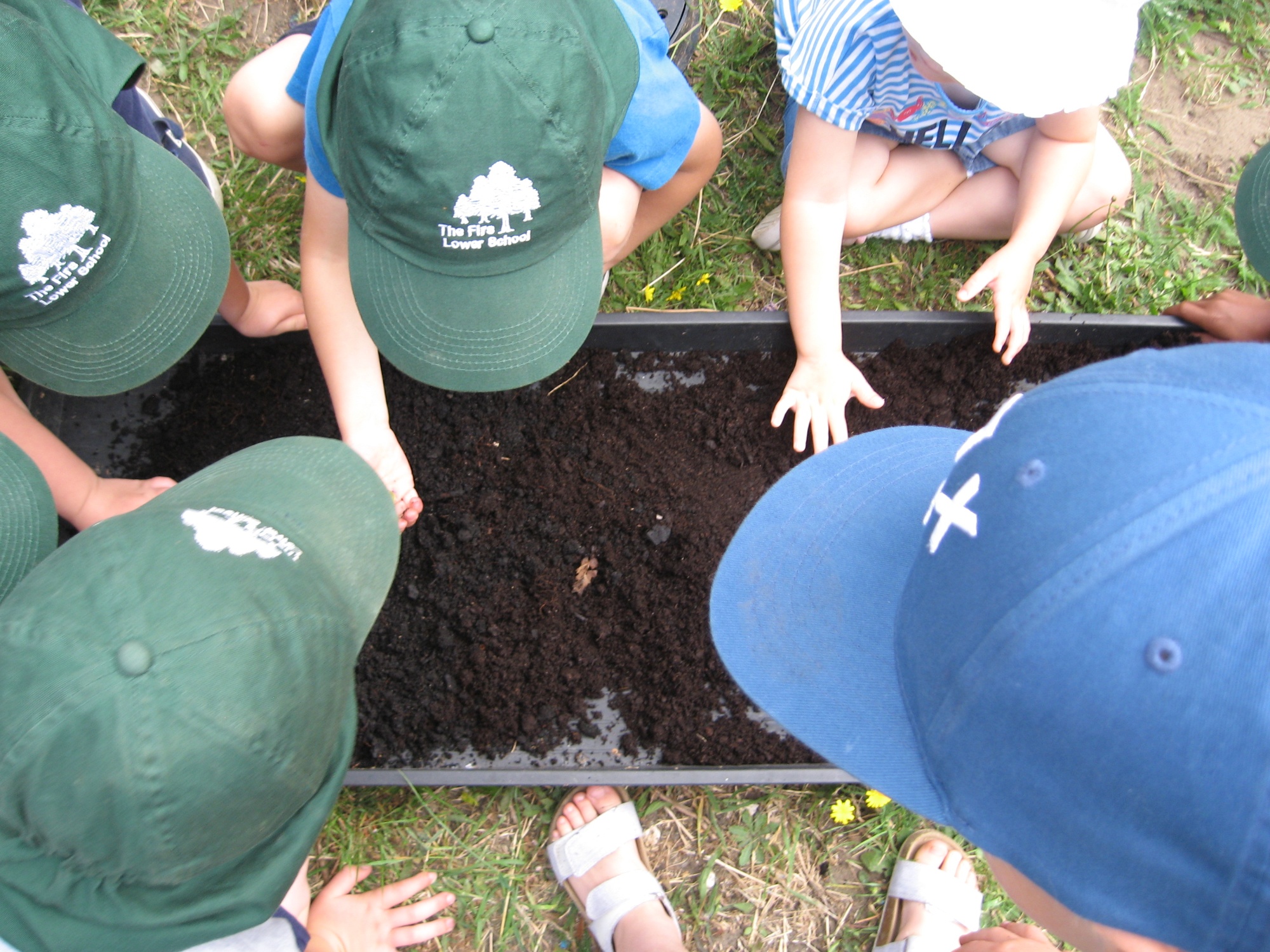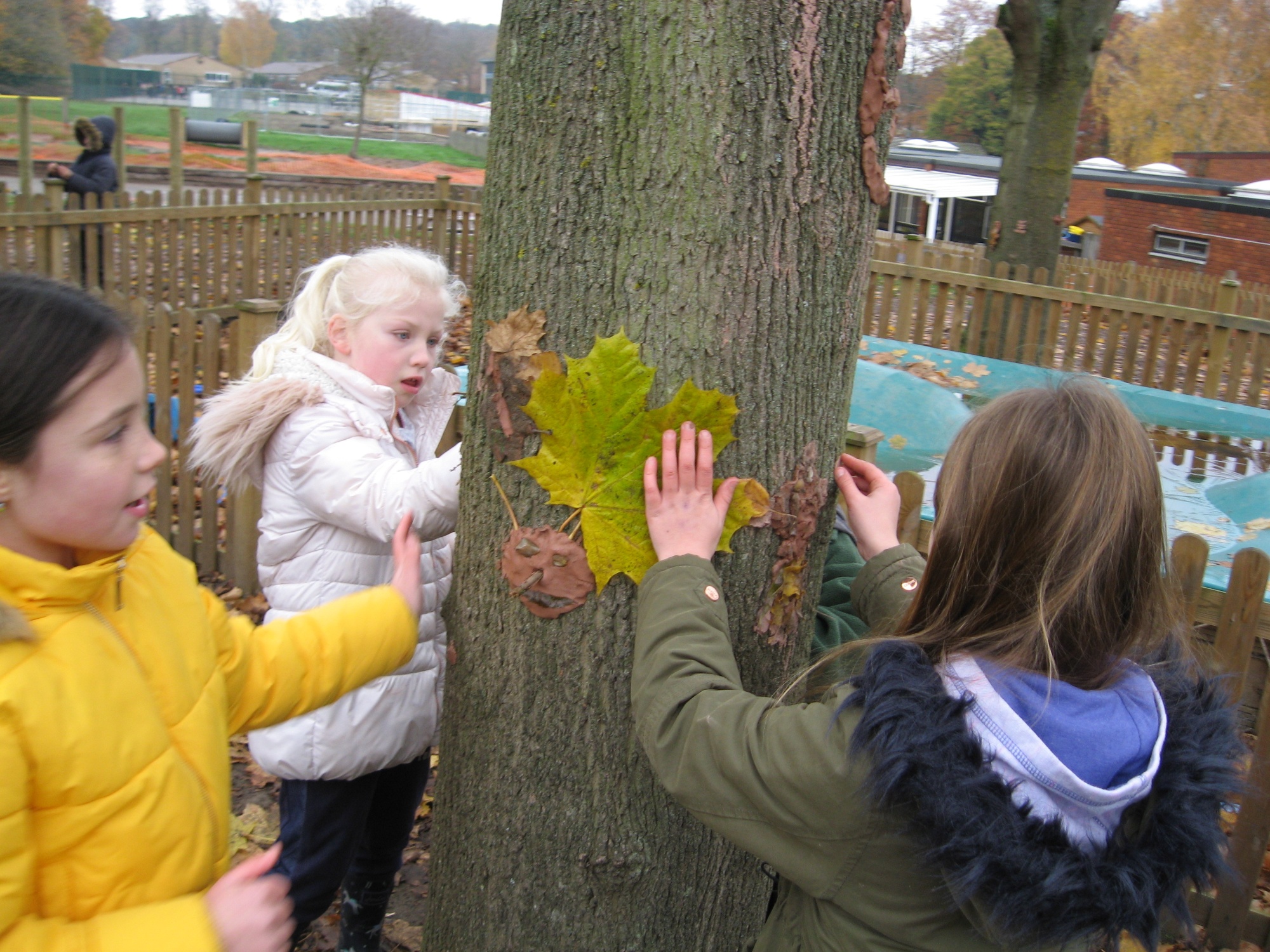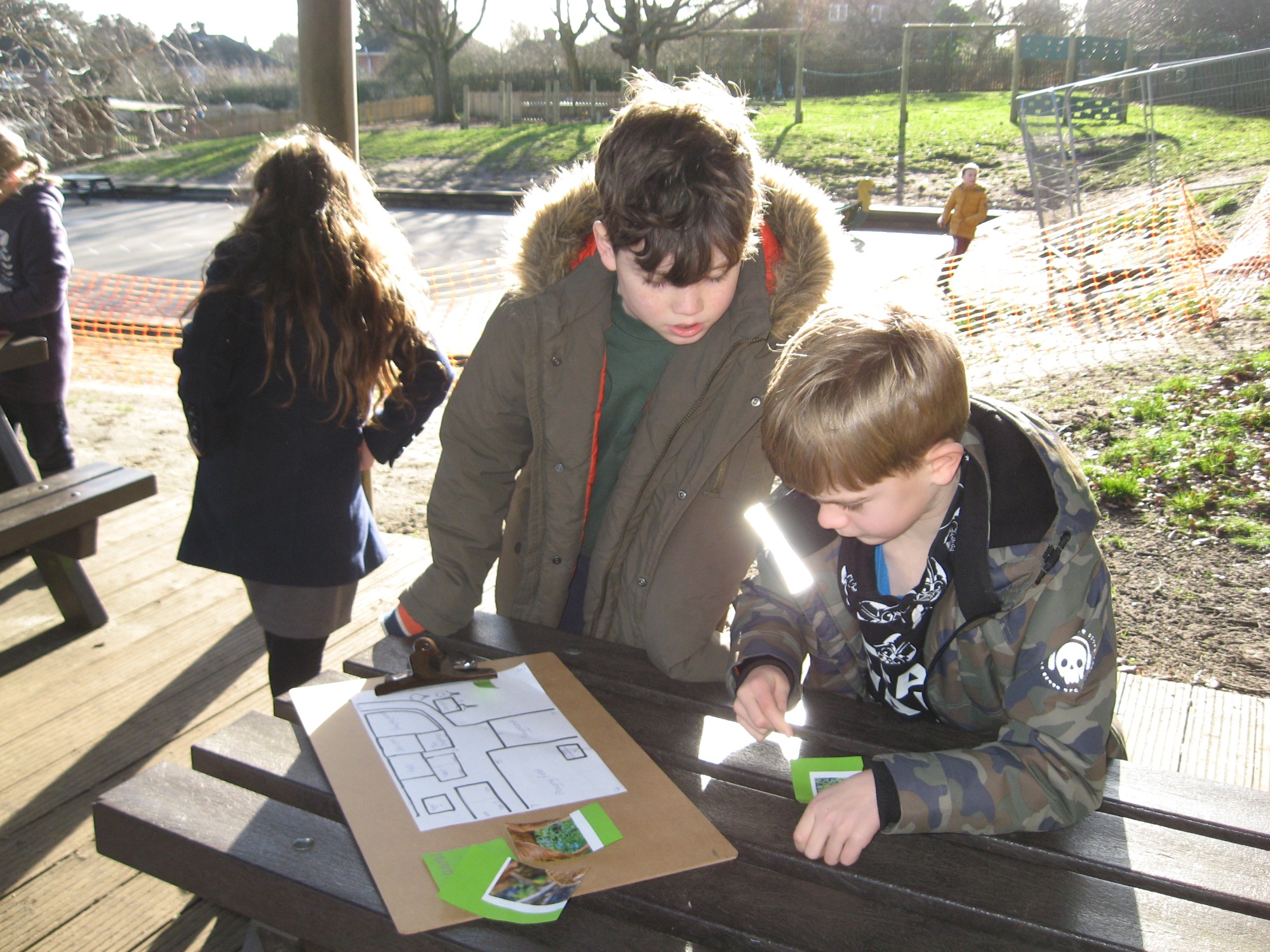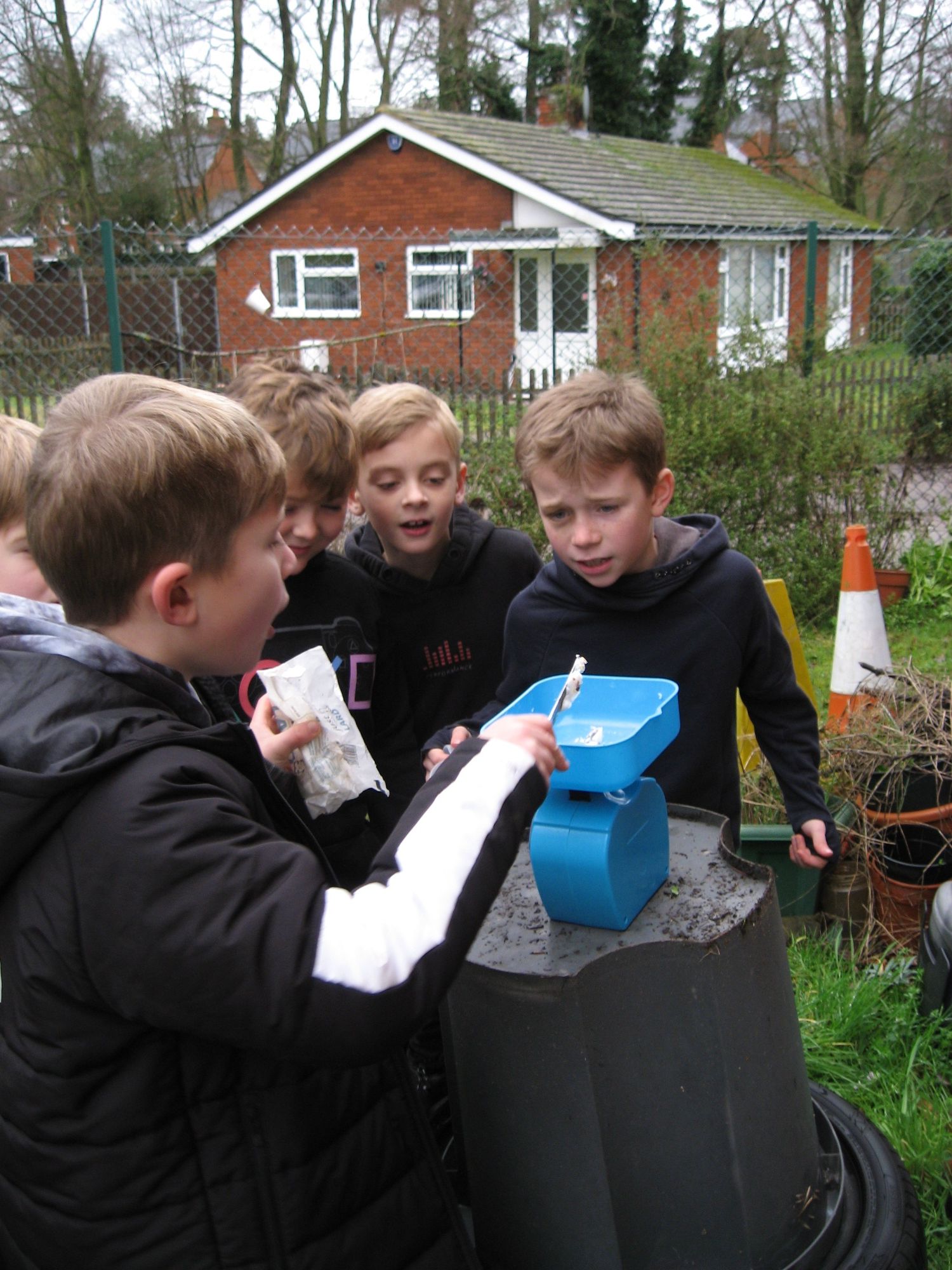Forest Schools
The Firs Lower is a ‘Forest School’ and all children Y1-Y4 undertake a block of Forest School work each year. This Forest Schools work is a vital part of our curriculum and makes a significant contribution to children’s learning and well- being. To quote Will Nixon, “Using the real world is the way learning has happened for 99.9% of human existence. Only in the last hundred years have we put it into a little box called the classroom”. There has to be something in that!
Whenever a Forest School session is planned it is always with a careful eye to the National Curriculum. Life does not follow discreet boundaries and so Forest School sessions are designed to be cross-curricular e.g. Science and Speaking and Listening; a show and tell of our butterfly masks allowed us to discuss things that were living/had never lived.
Sessions can be used to explore a favourite area of the curriculum or for consolidation of things already learned and can often be side-tracked and become child led in whole or in part! This comes about because of the range of stimuli that surround children when learning outdoors and because the children are allowed to follow their natural curiosity – something there is not always the time or the opportunity to do in class.
Outdoor tasks make the National Curriculum more relevant to children, giving them a better understanding of the purpose of their learning. It allows for the full engagement of children of all learning styles; visual, auditory and kinaesthetic, the needs of the latter group being far harder to meet in class.
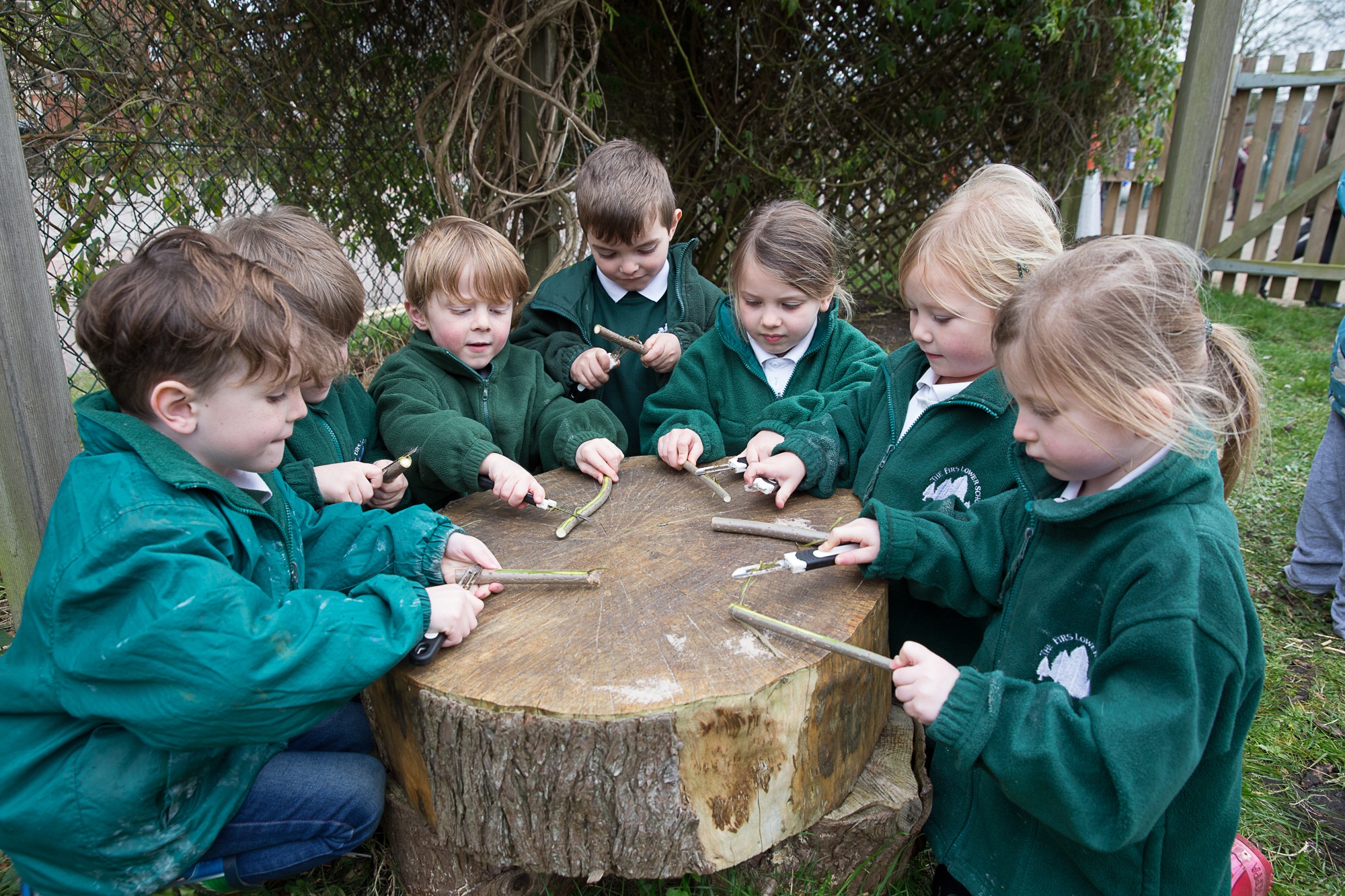
The outdoor curriculum gives children more exercise and fresh air, providing a direct positive impact on health and well-being. It engages children in learning in a different way as it involves a more hands on approach to learning, i.e. direct participation.
Using more senses and areas of the brain unlocks ideas or vocabulary that may be difficult to tap into the classroom – e.g. children may come up with vocabulary for a literacy task because they are actually experiencing or smelling it at that moment in time. Thus the outdoor curriculum leads to a greater pace of learning back in class.
The most important benefit of all of this to The Firs will be that children will be having fun with their learning and sessions are always structured to allow each child to experience success. As a result they will become more independent, self assured and confident, they will cope better with the everyday challenges that life throws their way. They will have more success with friendships and rely less on adult intervention. They will have the chance to try new things in a supportive environment, which may in the future allow them to open their eyes to other opportunities they may otherwise have discounted.
If children enjoy school, they will behave better. Children who struggle with writing may be valued by having the opportunity to speak about what they know instead.
Sessions are planned in order that children can learn in a way that suits their preferred learning style, so they are more likely to be comfortable with the learning experience and remember and retain what they have learned.
Working in smaller groups gives the Leader and supporting staff the opportunity to spot those who are having difficulties quickly and remedy the situation there and then.
With shared “show and tell” opportunities, regularly incorporated as part of the session, children learn to communicate better, to speak out about what they are proud of and to value their success, as well as respecting that of others. A child may see that they have done a good job when they thought they had not, another child may take away and be inspired with an idea for the future from someone else’s work. Group or teamwork is an integral part of Forest School and learning to work with others is a vital life skill.
Mary Ware
Forest School Leader

